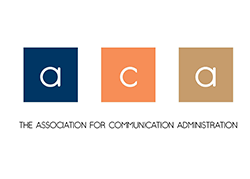Abstract
This article looks at the state of communication ethics study and practice in the U.S. Ethics has always been a dimension of communication theory and practice. But the definition of its role and the awareness of and emphasis given to it varies from communication theorist to theorist and practitioner to practitioner. These variations can be traced from the rhetorical theories and practices of ancient Greece to the present. Similarly, the approach to and emphasis given ethics as an element in communication has varied in the communication field's teaching and research. The academic units historically identified as speech, speech communication, communication arts or by similar rubrics typically are not preparing individuals to enter a specific profession. Teachers and students in these units working within the prevailing standards of the culture rarely identified ethical issues for detailed specific treatment and emphasis. The treatment of ethical issues depended on the emphasis given by the text, the instructor and classroom events. In contrast, journalism places significant, overt emphasis on ethical practices. Journalism texts stress the ethical requirements of the profession. This emphasis appears in introductory texts and there are numerous textbooks devoted to journalism ethics. Newspapers and magazines provide ethical codes that govern the work of reporters, photographers and editors. Violations of the code requirements result in censure and in some recent prominent cases firing of the individual.
Recommended Citation
Andersen, K. E. (2000). Developments in communication ethics: The ethics commission, code of professional responsibilities, credo for ethical communication. Journal of the Association for Communication Administration, 29(1), 131–144.


